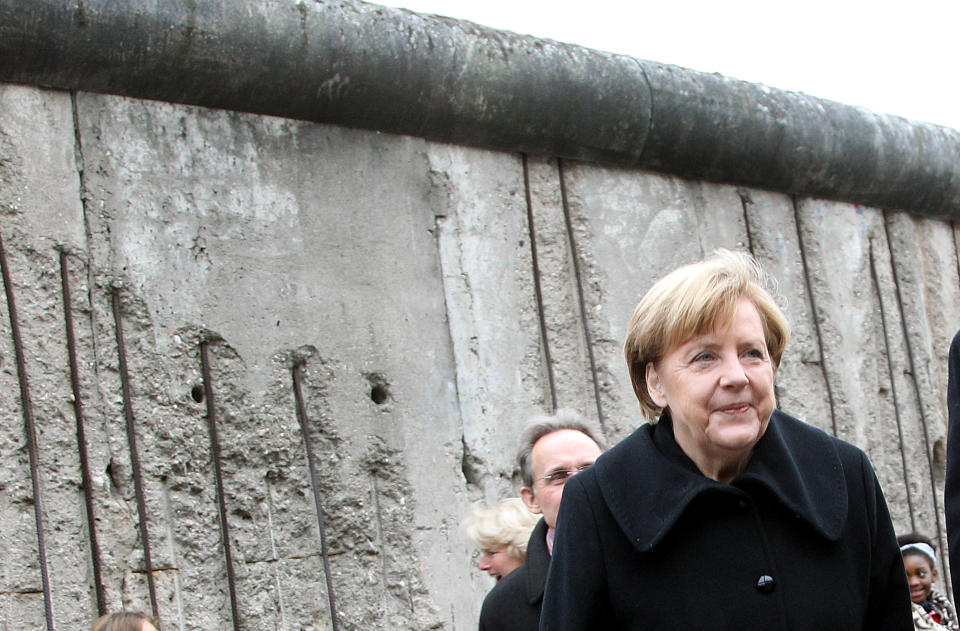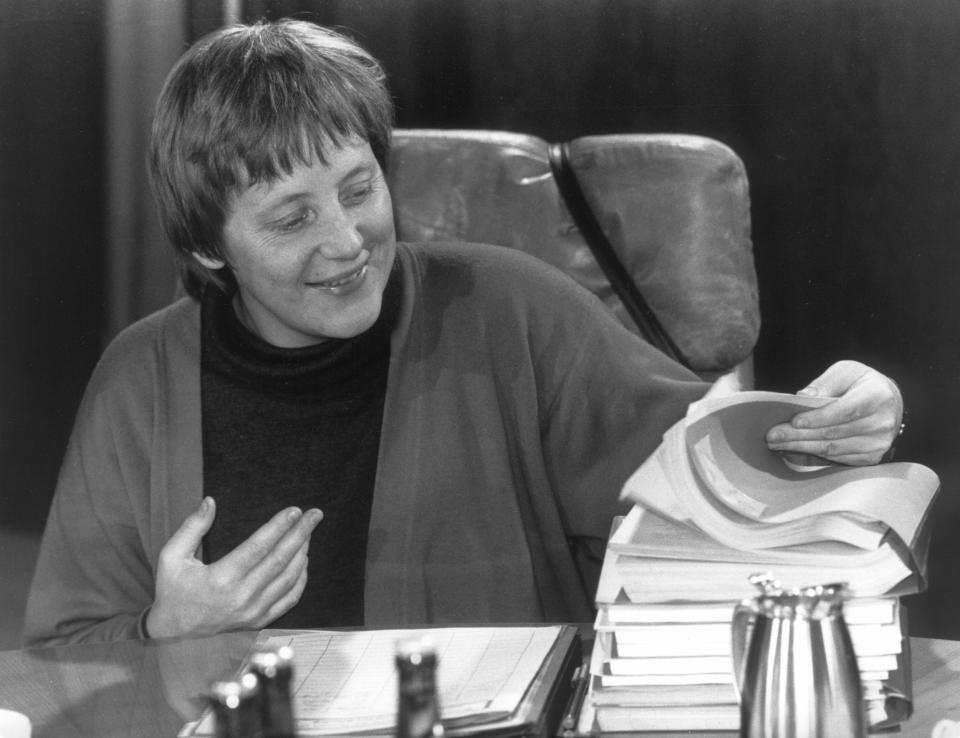Behind the Berlin Wall, Angela Merkel had an American dream

Angela Merkel, now in her 14th year as chancellor of Germany, opened up in an interview about how different her life would have been had the Berlin Wall not fallen.
In an in-depth interview with current affairs magazine Der Spiegel (link in German), Merkel, who was 35-years-old when the Berlin Wall fell on 9 November 1989, said were the wall still up today, she would have been a pensioner in the German Democratic Republic (DDR) by now, and able to finally make her dream come true.
“In the DDR, women retired at 60, so five years ago already I would already have picked up my passport and travelled to America,” Merkel told Der Spiegel, adding that once people were no longer part of the socialist labour market, they were free to leave the country.
“I wanted my first foreign trip to be America, because of its size, its diversity, the culture,” she said. “To see the Rocky Mountains, drive around in a car, and listen to Bruce Springsteen — that was my dream.”
However, driving a huge American car was not part of her US dream trip: She said she has always been a fan of smaller cars, “but it should have been something better than a Trabant.”
Trabants were the common car in East Germany, cheap and shoddily made. Today, tourists can experience the smoke-belching vehicles in Berlin these days, on so-called Trabi tours.

In response to the question of whether Germany really has much to celebrate on the 30th anniversary of the Wall falling, considering that the far-right Alternative for Germany party has emerged as a major political force in three states of the former east, Merkel said that November 9, 1989 was and will forever be a moment of joy in German history.
“So many people in the DDR dreamed of freedom between 1949 and 1989 — and suddenly we could talk about it publicly! We could raise our voice. And even today everyone can speak out,” Merkel said.
“I know that for East Germans of a certain generation, life after the peaceful revolution become free but not always easier; I also know that as well the successful regions, there are also those in which the villages are emptying, because children and grandchildren have moved away,” Merkel said.
However, she said she wanted to be clear that being dissatisfied with public transport, or medical care, does not give people the right to show hatred, contempt, or violence towards others. “There can be no tolerance for such behaviour.”
READ MORE: Germany's far-right surges to second place in another state election
Merkel, who earned her doctorate in quantum chemistry before going into politics in the early 1990s, has weathered her fair share of criticism, during her long tenure as chancellor.
Her decision to not close Germany’s borders at the height of the refugee crisis in 2015 was slammed by opponents as a dangerous move that led to increased polarisation amongst the German populace.
With characteristic understatement, the chancellor told an event in the coastal town of Stralsund this summer that she hoped her legacy would be: “She tried.”

 Yahoo Finance
Yahoo Finance 